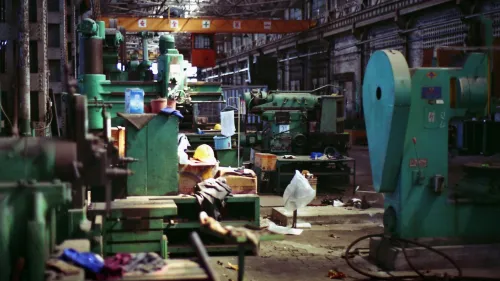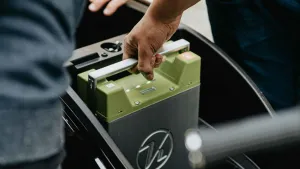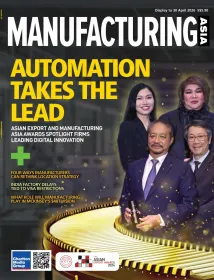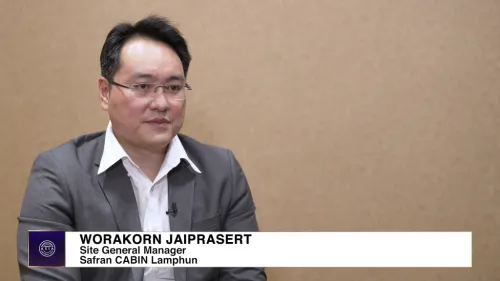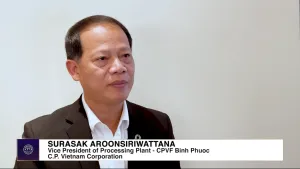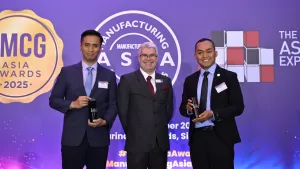Securing Singapore's manufacturing future with a multi-generational talent strategy
By Pearlyn ChiaBuilding a strong manufacturing talent pipeline doesn’t start at the hiring stage – it begins in the classroom.
Singapore’s Budget 2025 unveiled a suite of measures designed to future-proof the nation’s workforce, from increased SkillsFuture Credit support for mid-career professionals to the formation of a new Tripartite Workgroup to support the employment of mature workers. It is clear that ensuring that Singapore’s workforce stays competitive at every stage of their career remains a national priority, especially as artificial intelligence (AI) and automation reshape industries at full tilt.
For our local manufacturing industry in particular, such initiatives come at a critical juncture. With 81% of Singapore’s industrial employers struggling to find suitable candidates, the sector faces a widening talent gap that could slow progress towards the goals set out in Manufacturing 2030. Important groundwork might have been laid out in Budget 2025, but making the most of these initiatives will require individual companies to rethink their talent strategies. How can they develop a holistic multi-generational workforce strategy – one that taps into talent at every stage of the employee lifecycle?
Sparking early interest in STEM through experiential learning
Building a strong manufacturing talent pipeline doesn’t start at the hiring stage – it begins in the classroom. A recent Ministry of Education report found that whilst students in Singapore consistently outperform their global counterparts in STEM (science, technology, engineering and math) subjects, their interest in these subjects are also declining. A Universiti Malaya research suggests that traditional approaches, such as memorisation and theory-heavy lessons, can make STEM feel abstract and disconnected from real-world applications. As such, manufacturers need to rethink how they nurture young talent, moving beyond conventional recruitment methods.
This means engaging students as soon as their first year of secondary school through initiatives like career days, encouraging them to start thinking about their future pathways early. Whilst schools have actively expanded career guidance efforts, industry partnerships can bring them to life by offering exposure to real companies and insights from professionals through interactive exhibitions and talks.
According to Dr Maliki Osman, Second Minister for Education, applied learning helps to bridge theoretical knowledge to real-world applications, fostering a deeper appreciation for STEM from a young age. On top of participation in career fairs and open house events, manufacturing companies can go the extra mile by letting students have an immersive experience of their operations through curated experiential learning programmes, such as site visits, facility tours, and interactive learning spaces that simulate high-tech manufacturing environments. These activities demonstrate automation in action, showcase how materials move through different stages of production, and give students a glimpse into the world-class manufacturing facilities, dispelling historical norms about traditional manufacturing environments.
Reinventing learning for an AI-native workforce
As these students transition from the classroom to the workplace, it is crucial for companies to maintain the momentum they have built. This can be achieved through work-study initiatives that give students a head start in the manufacturing industry, or well-designed entry-level development programmes that equip graduates with the skills to adapt quickly to real-world work environments.
This generation of workers are also what we call AI natives – tech-savvy individuals who have grown up with AI and have access to information at their fingertips. Integrating technologies like augmented reality and virtual reality can make the training and onboarding process for these young talents more immersive, positively shaping their perception of the industry.
Helping mid-career professionals transition with confidence
As we cater for fresh graduates and a younger generation of tech-savvy digital natives, companies also need to consider mid-career professionals who are making a career switch. Whether they are pivoting to a new role or a new industry, or returning to the workforce after a break, it can be challenging to adapt to an increasingly digital manufacturing environment today without up-to-date technical skills.
Whilst existing government schemes such as Workforce Singapore’s Career Conversion Programmes (CCP) help mid-career professionals with the initial skills conversion, the onus remains on organisations to provide highly customised bridging programmes that focus on the technical skills needed to help employees transition into their new roles.
Another aspect companies must consider is the psychological well-being of these individuals. A National Trades Union Congress report from last year highlighted that mid-career workers experience a relatively higher level of anxiety compared to younger and older age groups, as they struggle with finding jobs that match their skills or interests. Pairing experienced employees to act as mentors would help them better assimilate into the existing organisational culture, whilst providing soft skills and leadership training could help these mid-career professionals recalibrate their working style in a different organisation.
Empowering mature workers with upskilling opportunities
This year’s Budget has also cast mature workers into the spotlight, an often overlooked yet significant segment of the manufacturing workforce. As a matter of fact, manufacturing employs the second-largest proportion of workers aged 55 to 64 amongst all sectors in Singapore, according to a 2024 Ministry of Manpower report. Beyond the current retirement policy, we extended the retirement age to 65 and are offering re-employment opportunities until 70.
Mature workers could stand to benefit from redesigned job scopes and digital skills training initiatives to help them remain competitive and employable in an AI-driven future. Having foundational skills in domains like AI and robotics will be particularly important for employability as our nation accelerates the transition toward Industry 5.0 in the near future.
Priorities set out in Budget 2025 send a strong signal that companies must act decisively to secure talent for the future. Just as manufacturers focus on nurturing young talent, they must simultaneously enable their employees to upskill, reskill, and cross-skill at every stage of their career journey.
A future-ready manufacturing workforce is one that unlocks the potential of every individual at every stage of their career – especially as we collectively advance Singapore’s position as a global manufacturing powerhouse.

